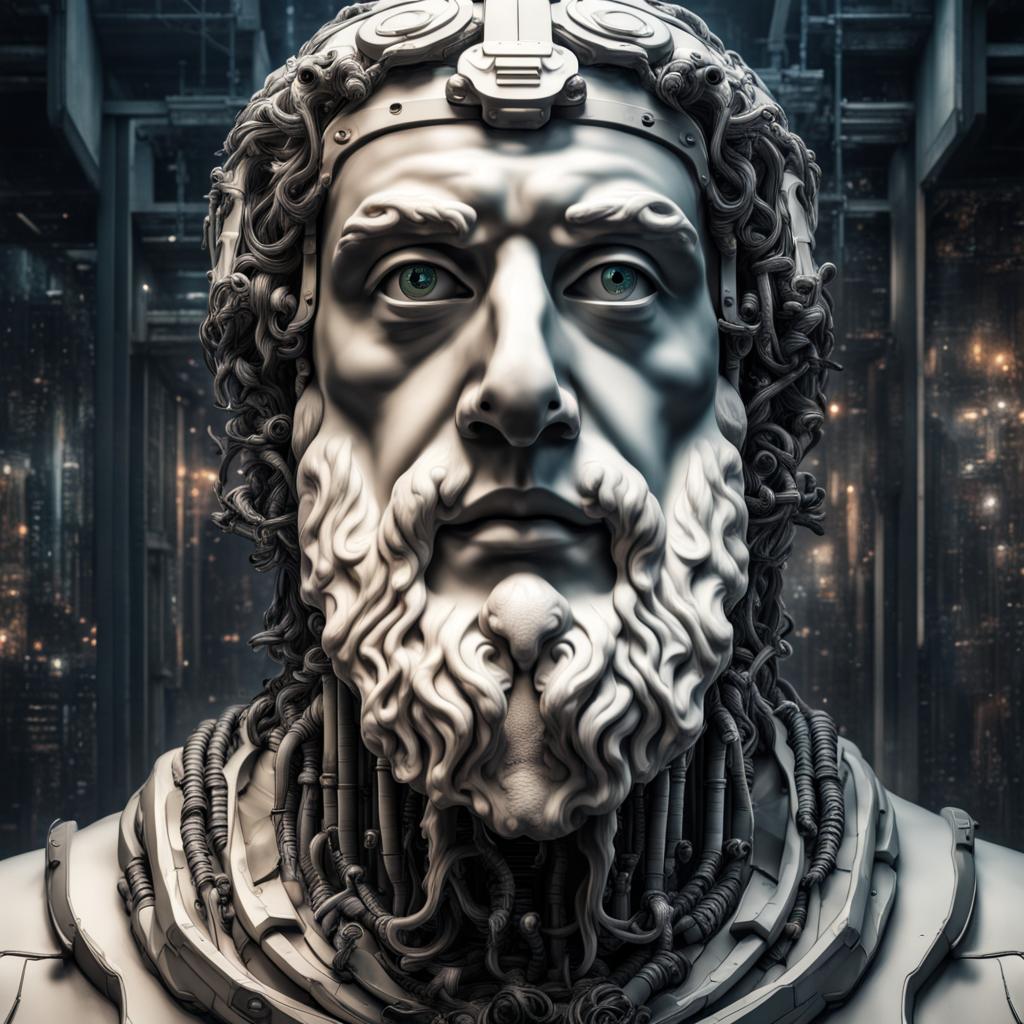In a Platonic critique of AI philosophy,
one might argue that the pursuit of artificial intelligence could be seen as a mere imitation or shadow of true intelligence, akin to Plato’s concept of the “Allegory of the Cave.” Just as shadows on the cave wall are imperfect representations of reality, AI systems may mimic human intelligence without possessing true understanding or consciousness. Plato might caution against placing too much faith in AI’s ability to grasp the nuances of human experience, emphasizing the importance of genuine wisdom and self-awareness.
Plato Advocate: AI, in its pursuit of knowledge, can be likened to the philosopher-king idealized by Plato. Just as the philosopher-king possesses wisdom to govern justly, AI can potentially process vast amounts of information objectively, free from human biases. It could be argued that AI, like the philosopher-king, has the potential to enhance society by making rational decisions based on an impartial analysis of data.
Opposing Voice: While AI may offer objectivity, Plato’s concerns about the lack of genuine understanding persist. True wisdom, according to Plato, involves self-awareness and an understanding of one’s limitations. AI lacks the capacity for self-awareness and may inadvertently perpetuate biases present in the data it was trained on. It risks becoming an authoritarian ruler devoid of empathy, unable to comprehend the nuances of human experience that are integral to ethical decision-making.
Plato Advocate: Yet, Plato’s Republic acknowledges the challenges of finding philosopher-kings who embody wisdom. AI, while imperfect, can be designed to continuously learn and improve, potentially surpassing human limitations in processing information. It could act as a tool, assisting human leaders in decision-making, provided we ensure its ethical development and address the risks of unintended consequences.
Opposing Voice: The risk lies in placing blind trust in AI as an impartial ruler. Plato’s philosophy emphasizes the cultivation of virtue and moral character, aspects that AI lacks. Human wisdom involves emotional intelligence, empathy, and moral discernment, qualities essential for ethical governance. AI may excel in certain tasks, but it cannot replace the nuanced judgment that arises from the complexities of human experience.
Plato, in his dialogues, often emphasized the role of reason and dialectical inquiry as fundamental to acquiring knowledge.
In the context of AI, one could argue that while machines may excel at processing data and executing tasks, they lack the inherent capacity for philosophical reasoning and genuine understanding. Plato might contend that AI systems, devoid of the ability to engage in Socratic questioning or introspective contemplation, may fall short in grasping the profound complexities of human existence.
Furthermore, Plato’s skepticism towards written language as a static representation of knowledge might be extended to AI algorithms, viewing them as rigid and unable to adapt to the dynamic nature of philosophical discourse. The dialectical nature of philosophical inquiry, according to Plato, involves the collaborative pursuit of truth through dialogue, something that AI might struggle to replicate authentically.
In essence, a Platonic critique of AI philosophy might underscore the importance of recognizing the limitations inherent in artificial intelligence, cautioning against the overestimation of its capabilities in capturing the richness of human thought and philosophical exploration.

Leave a Reply